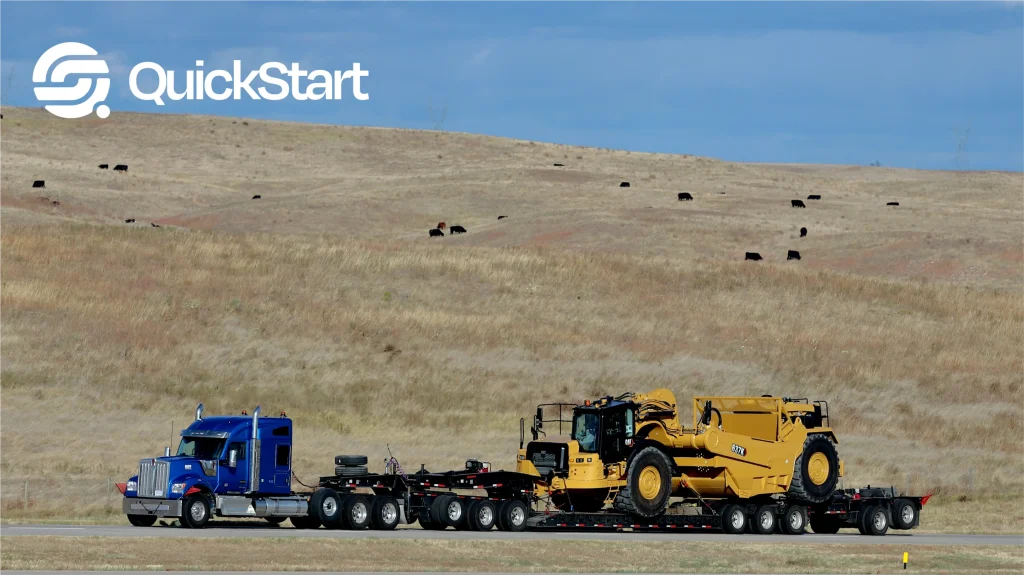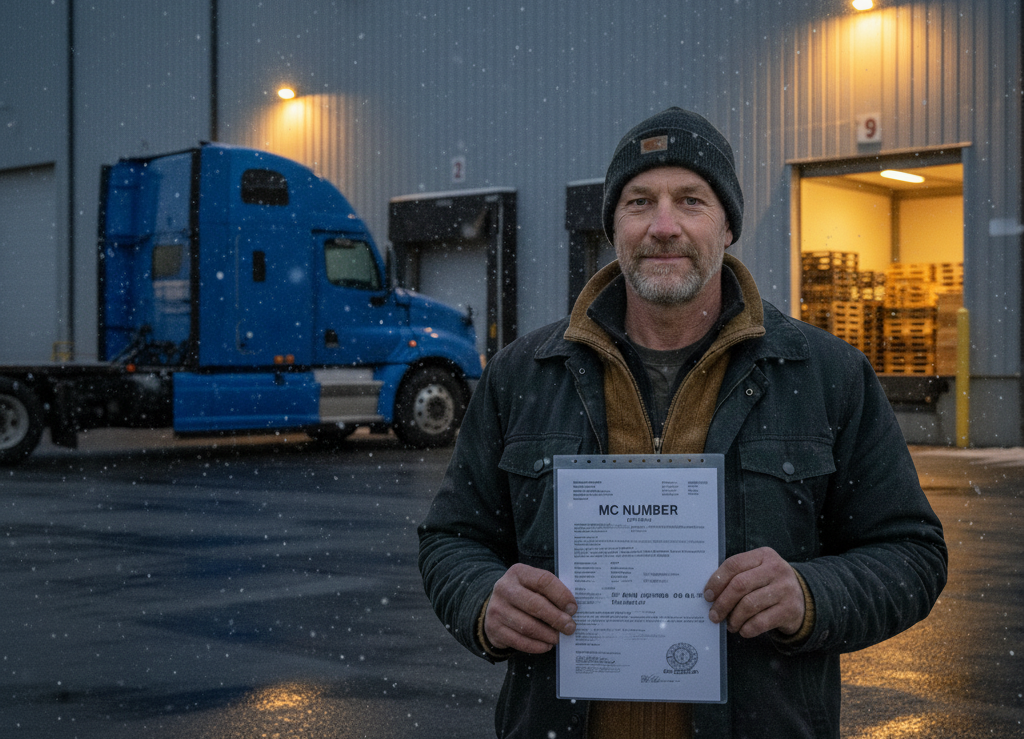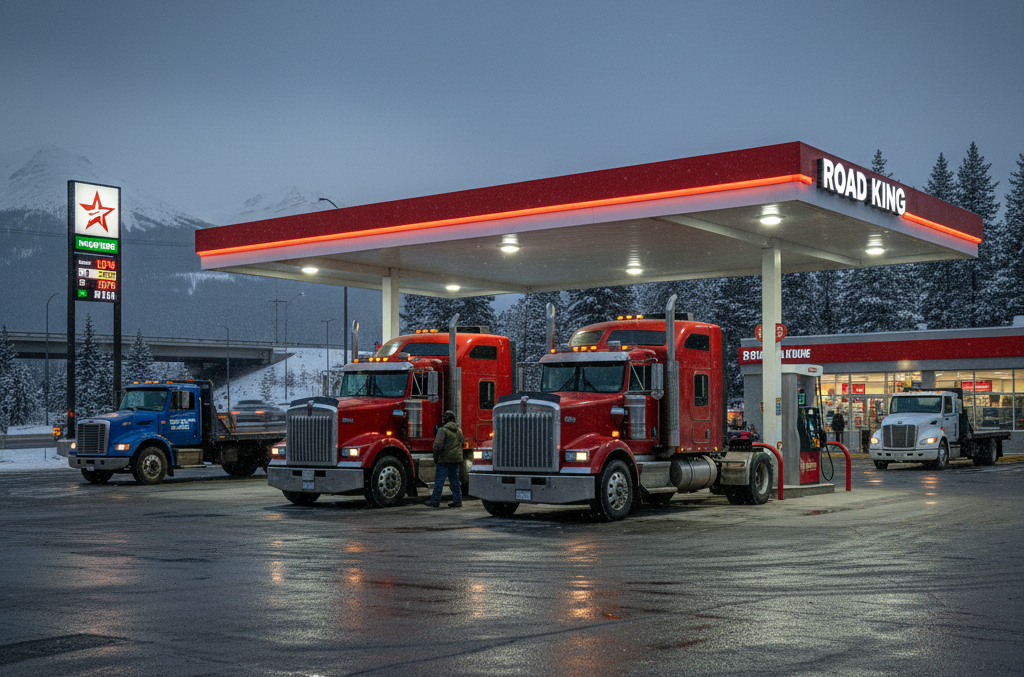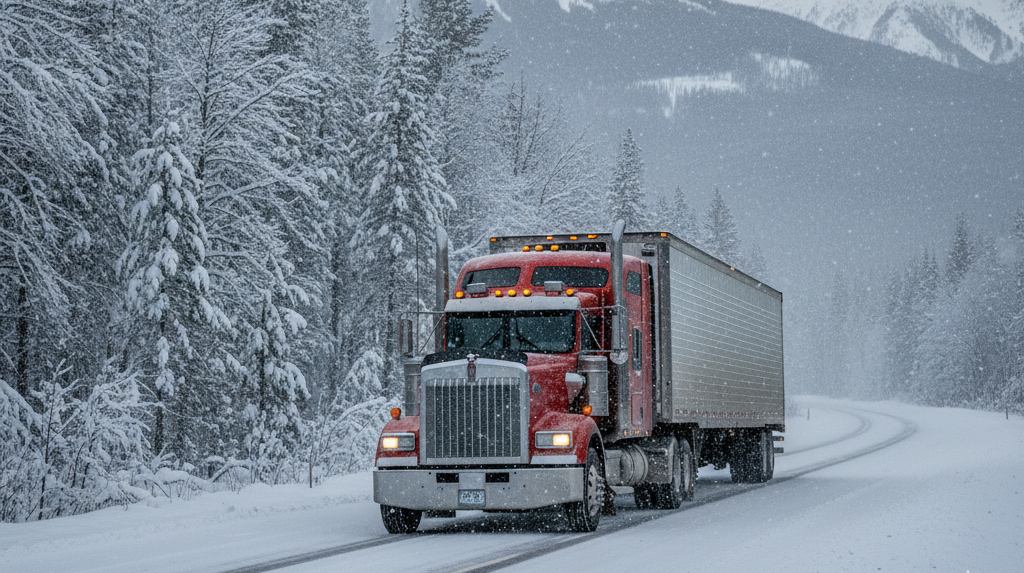How to start a trucking company in 6 steps
Starting a trucking company is a great way to increase your income and take control of your career. This choice requires a solid plan and a deep understanding of the sector.
Being a trucking business owner means handling multiple tasks, from getting financing and purchasing or leasing equipment to ensuring you have the necessary licenses. You also need to understand how to provide reliable delivery services and compete with other companies.
To simplify this process, we’ve outlined six sites to help you get started in trucking. They cover the main aspects of a trucking company launch, from setting a business plan to adhering to industry rules, such as proper insurance coverage, valid driving license, and permits to operate in the commercial transportation sector.
Write a Detailed Business Plan
A reliable business plan is a solid basis for success in any industry, including the trucking sector. It serves as a roadmap, helping you stay on track as you navigate the industry and grow your business. The plan should also outline your business goals and the necessary investment to launch a company.
Here are key aspects you should include in your business plan:
- Executive summary. An overview of your goals, target market, and financial outlook.
- Company description. Outline your business structure, mission, and values.
- Market analysis. Define and research your competitors and the industry. Identify markets you want to operate in, such as oversized goods handling, time-sensitive deliveries, or less-than-truckload shipments.
- Management. Outline how your company will be organized, including your team role and responsibilities. Define the business structure, such as a Limited Liability Company or corporation.
- Service portfolio. Outline the trucking services you plan to offer and the types of cargo you plan to transport.
- Marketing strategy. Plan how you will attract and maintain your customer base. This covers your pricing and promotion strategies.
- Funding request. First, define the amount you need for a launch and whether you need outside funding. For that, you can consider lease or loan options. Review the provided amount and conditions to choose the most profitable for you.
- Financial projections. Develop financial forecasts, including income and operational costs. Consider putting money aside to cover unexpected expenses.
Remember to regularly review your business plan. Update it as your business and industry develop to align the current trends and your company’s needs.
Obtain Required Licenses and Permits
The trucking industry has requirements and standards that all participants must comply with. They cover vehicle maintenance, insurance coverage, valid licenses, operating permits, business bank accounts, and proper qualifications.
Compliance with these requirements is essential for successful trucking operations, as even a single violation can lead to fines, legal penalties, or even a suspension of licenses.
- Commercial Driver’s License (CDL). It’s the main requirement if you plan to operate in the commercial vehicle sector. A CDL verifies your necessary skills and knowledge. Your license must align with the type of your vehicle and cargo. If you plan to hire truckers, ensure they have valid CDLs that meet your needs.
- USDOT number. Trucking companies are obliged to have a USDOT number issued by the US Department of Transportation. It serves as a company ID to track safety records and ensure adherence to the rules.
- Operating authority (MC) number. For commercial operations in multiple states, you need an MC number. It gives you the right to operate as a carrier across state borders.
- International Registration Plan (IRP). The IRP allows you to operate in multiple states or with one license plate. In addition, you must pay registration fees. The amount depends on the distance you travel in each area.
- International Fuel Tax Agreement (IFTA). The IFTA simplifies the process of fuel tax reporting is you operate across multiple states. For it, you have to submit quarterly reports.
- State-specific requirements. Some states have additional requirements, like permits for handling oversized loads. Ensure you’re aware of state standards and adhere to them.
Register Your Business
Business registration is the next essential step for starting a trucking company. For that, you must choose your company structure. This will affect tax payments, personal liability, and business operations management.
- Sole proprietorship. It’s the easiest structure. You and your company are considered as the same legal entity. It means you’re personally responsible for debts and obligations of your business.
- Limited Liability Company (LLC). Ann LLC provides more protection as it keeps your personal assets separate from your business liabilities. It also provides flexibility in taxation structure, offering the possibility to choose a specific structure.
- Corporation. Corporations provide even more protection for your personal assets. However, this structure involves more paperwork and formalities. Corporation is also divided on different types, each with specific tax advantages and ownership rules. Carefully review options to choose the most suitable for you.
As you decide which business structure you want, register it with your state’s Secretary of State office. In addition, an Employer Identification Number (EIN) must be obtained. It’s required to file taxes, open a business bank account, and hire employees.
Obtain Insurance Coverage
Proper insurance will help you safeguard your operations from risks related to the trucking sector. The type and amount of coverage you need depend on the nature and needs of your company, the cargo you haul, and your fleet volume. Liability insurance. This type is obligatory for all trucking businesses. It covers any damage or injury that occurs during truck driving.
- Cargo insurance. The coverage protects the goods you haul. This ensures compensation from cargo loss, theft, or damage during shipping, preventing financial losses or legal disputes with customers.
- Physical damage insurance. This provides compensation in case of truck repairs or replacement. The insurance protects from theft, damage, natural disasters, and vandalism.
- Bobtail insurance or non-trucking insurance. It protects you and your truck when driving for personal or non-business activities.
- Worker’s compensation. You must have worker’s compensation insurance if you plan to hire a driver or other staff. It covers medical expenses and lost wages in case of an employee’s injury.
Review different offers and compare policies and rates to choose the best coverage at an affordable price. Remember to review limitations and exclusions to ensure all the protection you need.

Purchase or Lease Equipment
When starting a trucking business, one of the biggest investments is acquiring the right truck and equipment. You can buy or lead a truck and necessary equipment. To make this choice, you should rely on your budget, business goals, and long-term strategy.
- Purchase of a new truck. New equipment provides reliability as it comes with a warranty. Thus, this decision can be a safer choice for maintenance and downtime. However, this option requires a bigger investment and requires strong financial recourse.
- Purchase of a used truck. Purchasing a used vehicle can be more affordable and require more repairs and maintenance. It’s essential to inspect a truck before buying to prevent costly fixes.
- Lease of a truck. The option of leasing offers more flexibility and lower startup investments. It’s a suitable option if you want to save money while testing the market. You can also lease-to-own, which provides a right to own the truck after the end of a lease period.
You should also equip your truck to ensure efficient operations. Additional equipment usually includes GPS systems, electronic logging devices (ELDs), and safety gear. Besides, hauling specific cargo types like hazardous materials or time-sensitive items requires specific equipment. Choose the right setup that meets your needs and plans.
Secure Startup Funding
Starting a trucking business requires significant capital. You must cover expenses for buying or purchasing equipment, obtaining insurance and permits, and covering initial operational costs. Exploring your funding options is critical to launch a business.
- Personal savings. You can use your savings. It gives you full control without debt taking. However, it limits your natal growth potential.
- Small Business Loans. The Small Business Administration (SBA) offers loans for startups. Banks and credit unions also provide business loans, though they usually require a solid credit history.
- Investors. If you’re ready to share ownership, you can consider bringing in investors. This can provide the capital you need but involves shared business control.
- Grants. It’s a less common option. You can apply for a grant for a small business.
Calculate the funds you need to launch a company and set a financial plan. It will help you choose the most affordable financial strategy.

Conclusion
Starting a trucking business is a complex process that requires thorough planning, adherence to regulations, and careful management of your finances. You must also have a deep understanding of the industry and be ready to face challenges. By following these six steps, you can prepare to launch a competitive trucking business.
Keep yourself updated about the industry’s recent trends and strategies. Thus, you can focus your investment and prioritize specific aspects of your business to remain competitive.
Remember, your success is based on your ability to adapt, innovate, and maintain industry standards.




